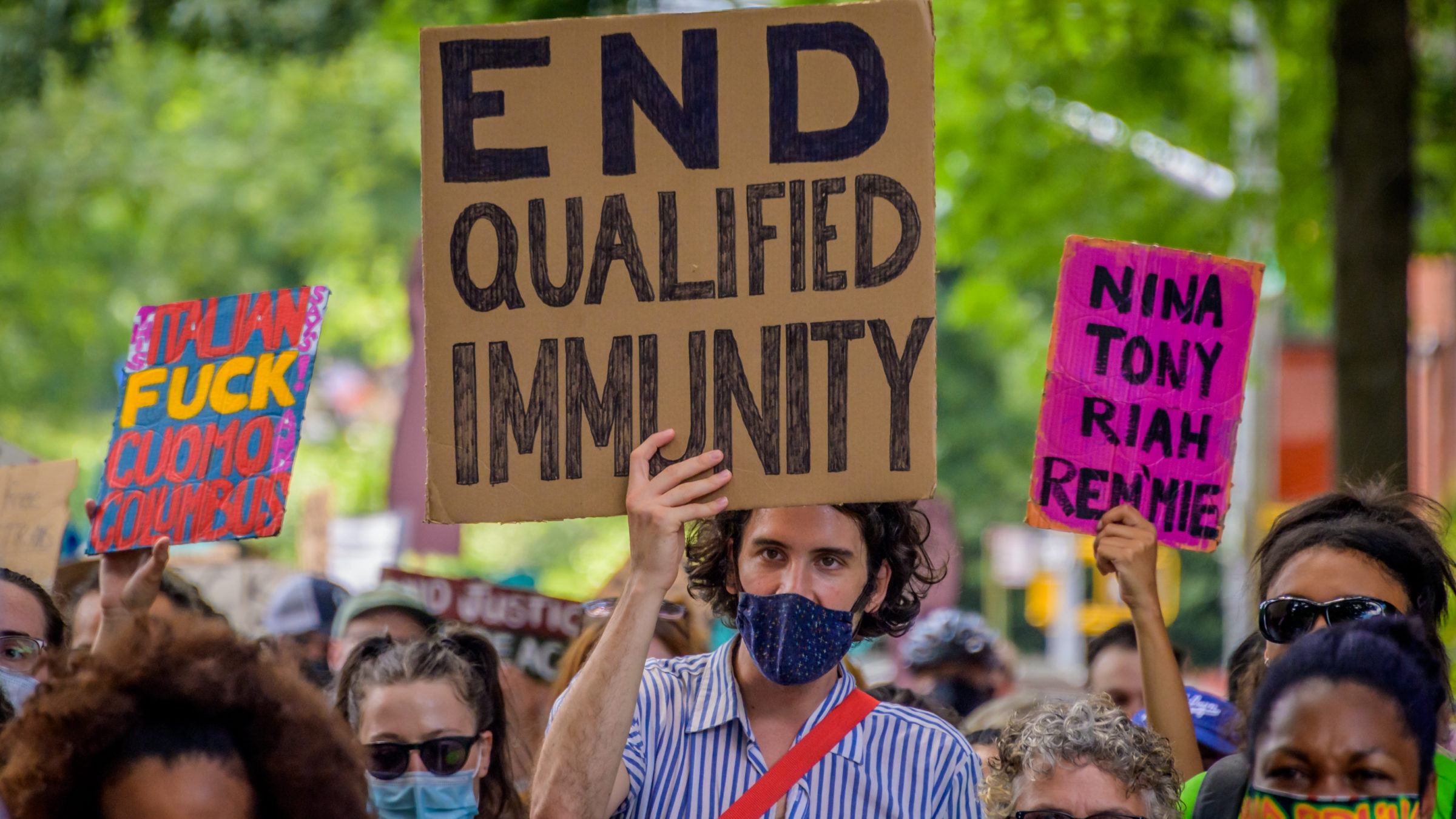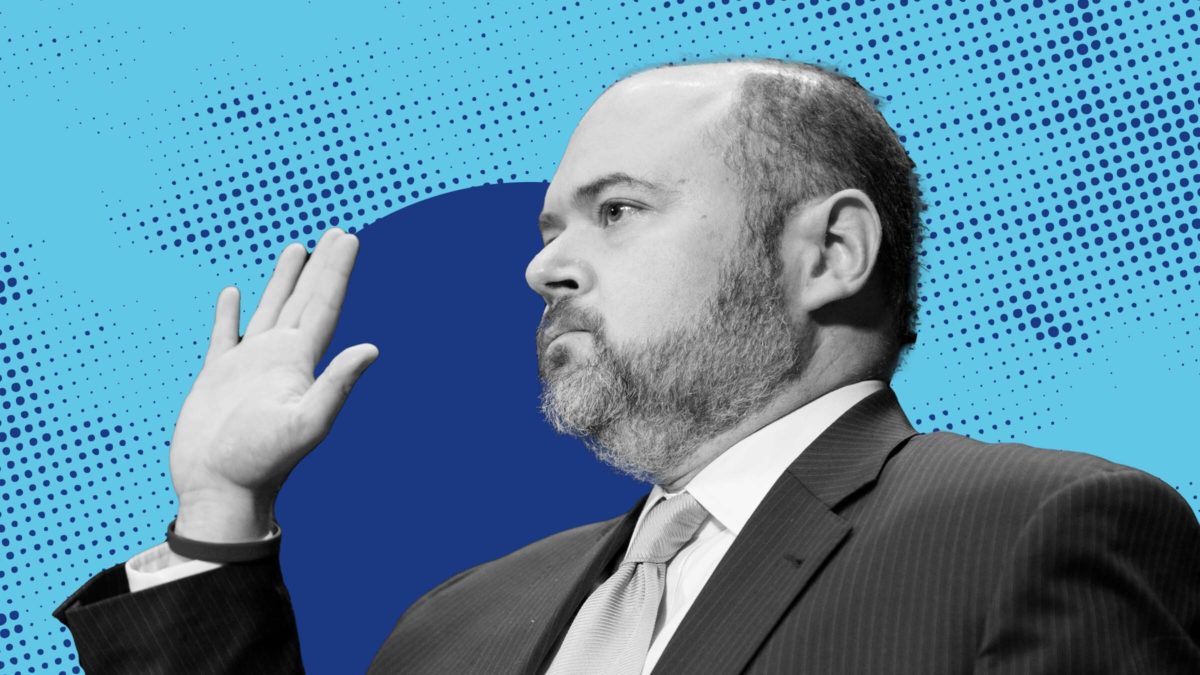To paraphrase Justin Timberlake in The Social Network: If you’re a cop who enjoys lying so hard that the people you’re paid to protect end up in jail, qualified immunity isn’t cool. You know what’s cool? Absolute immunity.
Qualified immunity, as readers of this site are likely aware, is a judicially-created doctrine that allows police to evade responsibility for nearly every flavor of misconduct as long as a previous case doesn’t precisely establish the misconduct’s illegality. Qualified immunity is, objectively speaking, fucking awful, and in a just society Congress would have abolished it by statute long ago. Still, at least it’s “qualified,” because courts, on occasion, find it within themselves not to shield police from the barest of consequences for their worst actions.
Absolute immunity, on the other hand, is exactly what it sounds like: blanket protection for state officials from civil liability. And a recent case from the Eighth Circuit Court of Appeals extended absolute immunity to a police officer whose on-the-job lies wrecked the lives of two dozen people—part of the legal system’s diligent efforts to make sure that no one in power is ever held accountable for abusing it.
To understand how this happens, we first need to talk about how people are supposed to recover for violations of their civil rights. A federal law known as Section 1983 allows people to sue when government officials—police officers, schoolteachers, child protection workers, and so on—act “under color of law,” by abusing the authority that comes with their job title. Typically, states respond to Section 1983 lawsuits by arguing that they should be immune from prosecution because the official’s conduct “does not violate clearly established statutory or constitutional rights of which a reasonable person would have known.” Officials, the thinking goes, shouldn’t need to second-guess themselves in the heat of the moment. Imputing to them a knowledge of only clearly defined law helps (in theory) to distinguish what is reasonable from what is not.

Not just qualified immunity, though! (Photo by Erik McGregor/LightRocket via Getty Images)
However, courts are notorious for their generous grants of qualified immunity, extending the benefit of the doubt even to officers who, say, shoot someone in the back. And just about any possibility of holding cops accountable falls away when local cops are assigned to federal task forces. At that point, they become absolutely, magically immune for their conduct, no matter how awful it may be.
This was the takeaway of a recent Eighth Circuit Court of Appeals case concerning the actions of one Heather Weyker, a Saint Paul, Minnesota, police officer who worked on a federal child sex-trafficking ring case for years. The investigation ended in 2010, when prosecutors arrested 30 people, most of whom were Somali immigrants, on charges of conspiracy to commit sex trafficking.
For an officer like Weyker, working this case was a big, career-making assignment, except for one tiny detail: Weyker had a persistent habit of lying about just about everything. In discussing the near-complete collapse of the trafficking case, another federal appeals court noted a lower court’s findings that Weyker “likely exaggerated or fabricated important aspects of this story” and had lied to the grand jury. Ultimately, not a single person was convicted.
The real-world consequences of Weyker’s lies were, in a word, horrific. Twenty-three Somali immigrants spent a combined 44 years in jail awaiting trial, and almost 50 years under some form of government monitoring. One man, branded a child molester, had his head split open in jail. Another, a teenager when Weyker’s lies ensnared him, was committed to a mental institution upon his release. A 19-year-old had to give birth in jail while waiting for the sex trafficking case was being prosecuted.
Nearly two dozen defendants eventually filed suit against Weyker, accusing her of fabricating facts in a criminal complaint, lying to prosecutors, and manufacturing allegations of sex for money. Yet to date, judges have dismissed nearly every case. That’s because Weyker, despite being a municipal cop during her lying spree, was detailed to a federal task force. Although Weyker held herself out as a Saint Paul police officer and a member of the federal task force, and used a Saint Paul police form when advising a witness of their Miranda rights, and filed incident reports with the Saint Paul police, according Judge David Stras, she wasn’t acting “under color of state law.”
As if this weren’t bad enough, Stras decided that Weyer couldn’t be sued for violating federal law, either. To prevail on a federal civil rights claim, he wrote, a plaintiff has to prove their case is factually similar to one of three causes of action the Supreme Court has blessed when federal officials are involved: fatal mishandling of a medical condition by prison officials, sex discrimination that runs afoul of the Due Process Clause of the Fifth Amendment, or illegal warrantless searches in one’s home. As Weyker did none of these things, the doctrine of absolute immunity means she’s free and clear.
Federal agents aren’t the only people who enjoy the privilege of absolute immunity. Prosecutors have absolute immunity in nearly all of their duties. So do judges. But here, Weyker was a municipal police officer performing police officer duties. It’s a fiction, a sleight of hand, to reward her assignment to a federal task force with a get-out-of-court-free card. The court’s formalistic focus on her role, rather than her actions, gives a green light to police officers who would normally be liable under section 1983 to abuse their roles as federal officers to lie with impunity.
The scourges of qualified immunity and absolute immunity could, in theory, be addressed by Congress. Stras hammered on this point in a separate Weyker-related case, noting that “the separation of powers generally vests the power to create new causes of action in Congress, not us.”
A moribund, gerrymandered legislature, however, will not get around to expanding the rights of people harmed by cops anytime soon. (A 2021 bill to abolish qualified immunity from Massachusetts Representative Ayanna Pressley went nowhere; the year before, Indiana Republican Senator Mike Braun expressed some support for reform, but dropped it after pushback from Fox News and police unions.) As a result, we move forward in a world where judges keep finding newer, dumber reasons to make life more comfortable for police officers, and less forgiving for those people subject to their abuse and incompetence.

